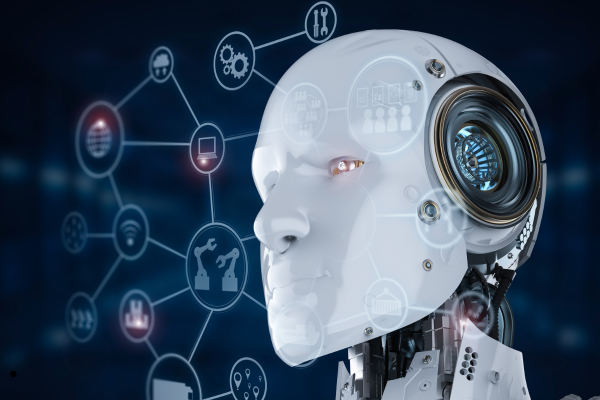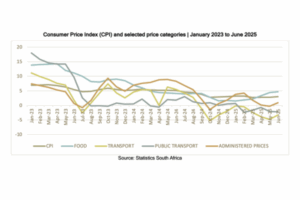At the LRS, we like technology. We use technology every day – to talk to each other, to talk to you, to do research, do help refine our work. And we can’t ignore that AI has come into our work more and more over the course of the last year. But what do we do with this? We wanted to share with you what we’ve been doing, how we think AI will impact not only our jobs but the way that unions work, and our first look into a speech generating AI.
So, what is Artificial Intelligence?
AI is basically trying to create computers and software that can do similar “smart” things that humans can do. AI is learning by using and analysing huge amounts of information (like text, images, or numbers). This is called “machine learning”. Imagine having everything on the internet available to you and being able to process that information in seconds! AI is a powerful tool – but it is not perfect. If there is a mistake in the information (or data), it will replicate that mistake. However, the more information we feed AI, the more it learns. And while this sounds intimidating and even scary, we can use it to our advantage too.
There are two questions that have come up during our discussions:
1. Will AI take over your job?
Many discussions about robots and computers taking over jobs are mostly based on research done in richer countries like those in Europe and North America. In Africa, we have lower income levels and limited infrastructure. Technology will play out differently here.
Parts of our jobs may be affected – things that are repetitive and predictable. But many jobs simply can’t be done by AI – like a plumber or a builder. Parts of these jobs may be automated, changing the nature of jobs. And this is what we should be on the lookout for.
2. Will AI be used to [unfairly] monitor your job?
Tools that are powered by AI need a lot of information to work. For example, if the tool is monitoring only a few workers, it only knows what those few workers are doing and can’t really use such a small sample to learn. However, if the tool has many data points and workers, vast datasets, it can learn. This article explains it well:
Employers can harvest these data through invasive surveillance of workers, while AI companies may simultaneously gather even more information by processing large amounts of data automatically. If an employer plans to implement an AI-powered tool in its workplace, it may need data unique to its particular warehouses, trucks, or employee laptops. Employers may gather those data by tracking workers via means such as cameras and microphones, now powered by AI, as well as by monitoring work laptops issued to employees.[1]
Collective bargaining
Collective bargaining is proving to be a critical tool for workers seeking to control the impact of AI and algorithmic technologies. Recent contract wins demonstrate its effectiveness in ensuring these technologies improve, rather than worsen, working conditions.
We need governments to “strengthen workers’ right to come together in unions; ensure AI supplements, rather than replaces, workers; prepare the workforce for AI adoption; and help meet the needs of workers who are displaced.”
Legistaltion takes a long time and while we are waiting for this to happen, workers’ organisations can use collective bargaining to negotiate jobs being negatively affected by the use of AI. We can negotiate that workers’ benefit from the productivity increases.
A great example of this is when, in late 2023, “casino workers in Las Vegas represented by the Culinary Workers Union achieved a new contract that included a severance package of $2,000 for each year the employee worked if the employee’s role was eliminated due to “technology or AI.””[2]
Conclusion
AI presents challenges, but also opportunities. How are you using AI? I had Gemini (Google’s AI platform for public use) help me write this article. An important note – AI did not write this article, because it can’t do much unless I tell it to do something. But when I had a question or was unsure how to word something, AI helped. It took over part of my job.
We also played around with Google’s ‘Notebook’ – which created a podcast based on the information solely from our website homepage.
I invite you to take a listen here.
We were all taken aback at how accurate the information was and how well the software captured our organisation.
I encourage you to send us your questions about AI, as we continue to work in this changing environment: [email protected]
____________________________________
[1] https://www.americanprogress.org/article/unions-give-workers-a-voice-over-how-ai-affects-their-jobs/
[2] https://www.americanprogress.org/article/unions-give-workers-a-voice-over-how-ai-affects-their-jobs/
RELATED RESOURCE
Trade unions negotiate the future of work
RELATED ARTICLES
The future of work in the retail sector
Automation, data mining and the future of retail jobs







